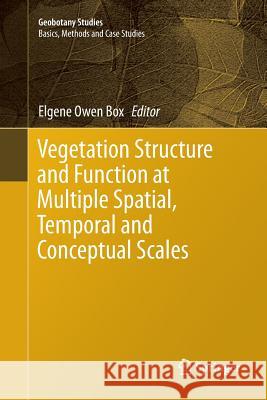Vegetation Structure and Function at Multiple Spatial, Temporal and Conceptual Scales » książka
topmenu
Vegetation Structure and Function at Multiple Spatial, Temporal and Conceptual Scales
ISBN-13: 9783319793436 / Angielski / Miękka / 2018 / 578 str.
Kategorie:
Kategorie BISAC:
Wydawca:
Springer
Seria wydawnicza:
Język:
Angielski
ISBN-13:
9783319793436
Rok wydania:
2018
Wydanie:
Softcover Repri
Ilość stron:
578
Waga:
0.85 kg
Wymiary:
23.39 x 15.6 x 3.17
Oprawa:
Miękka
Wolumenów:
01
Dodatkowe informacje:
Wydanie ilustrowane











